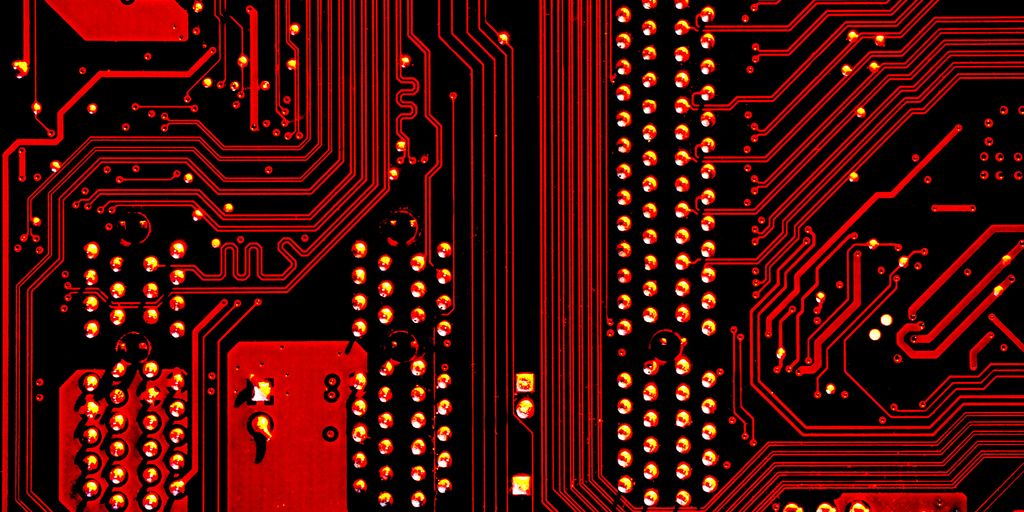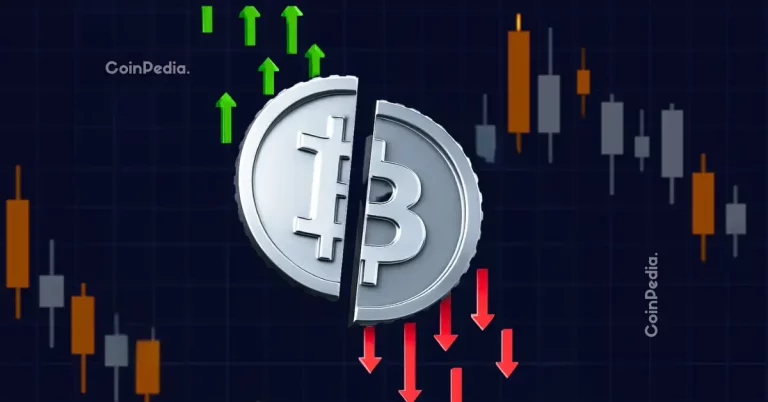
As we step into 2023, the technological landscape continues to evolve at a breathtaking pace, introducing new concepts and enhancing existing technologies. This article delves into the latest trends in technology for 2023, exploring key areas such as Artificial Intelligence, the Internet of Things, Quantum Computing, and more. We aim to provide insights into how these technologies are shaping industries, their potential impacts, and the ethical considerations they bring along.
Key Takeaways
- Artificial Intelligence and Machine Learning continue to advance, significantly impacting various industries and raising important ethical questions.
- The Internet of Things is expanding its reach, particularly through smart home devices and industrial applications, though security remains a major concern.
- Quantum Computing is making breakthroughs, offering revolutionary applications and promising substantial future prospects.
- Augmented Reality and Virtual Reality are experiencing substantial market growth, particularly in education, training, and entertainment sectors.
- Blockchain technology is increasingly being applied beyond cryptocurrencies, notably in enhancing supply chain transparency and security.
Artificial Intelligence and Machine Learning

Advancements in AI
AI continues to evolve, transforming industries with enhanced capabilities in data processing and automation. Key advancements include generative AI, which is revolutionizing content creation and decision-making processes.
Impact on Industries
AI’s integration into various sectors is creating new opportunities and efficiencies. Industries like healthcare, finance, and manufacturing are witnessing significant transformations due to AI-driven innovations.
Ethical Considerations
The rapid deployment of AI technologies raises important ethical questions. Ensuring AI fairness, transparency, and accountability is crucial to address biases and protect privacy rights.
Internet of Things (IoT) Expansion

Smart Home Devices
IoT is transforming homes into hubs of smart technology. From thermostats that adjust to your schedule to fridges that can order groceries, the convenience is unmatched. This sector is seeing a continuous evolution and resilience, projected to grow significantly.
Industrial IoT Applications
In industries, IoT devices streamline operations and enhance efficiency. They monitor machine health, optimize production processes, and improve safety. The integration of IoT with cloud computing is creating interconnected systems that boost business processes.
Security Challenges
The expansion of IoT brings substantial security challenges. As devices proliferate, so do the vulnerabilities. Providers are intensifying efforts to fortify security, focusing on safeguarding interconnected devices from cyberattacks. This is crucial for maintaining trust and functionality in IoT ecosystems.
Quantum Computing Breakthroughs

Understanding Quantum Technology
Quantum computing leverages quantum mechanical phenomena such as superposition and entanglement, offering exponential speed advantages over classical computers. Key sectors like cryptography, optimization, and drug discovery stand to benefit immensely.
Real-world Applications
Quantum computing is not just theoretical; it’s making real-world impacts. From enhancing vaccine development during the COVID-19 pandemic to revolutionizing banking and finance, the applications are vast and transformative.
Future Prospects
The future of quantum computing holds promising prospects. With global revenues projected to surpass $2.5 billion by 2029, major players like Google and IBM are heavily investing in this technology. Businesses are also preparing for a quantum-safe future with quantum-resistant cryptography.
Augmented Reality and Virtual Reality

AR in Education and Training
Augmented Reality (AR) is transforming the educational landscape by providing immersive learning experiences. Interactive simulations and real-time information overlay allow for a more engaging and effective learning process. Key applications include medical training and historical exploration.
VR in Entertainment
Virtual Reality (VR) continues to redefine the entertainment industry. From gaming to virtual concerts, VR offers a fully immersive experience that heightens user engagement. The technology is pivotal in revolutionizing how we experience entertainment, setting new standards for user interaction.
Market Growth
The AR and VR markets are experiencing rapid growth, driven by advancements in technology and increasing consumer demand. Expected to reach 3,674.0m users by 2028, these technologies are becoming integral in various sectors, including retail, where they enhance the shopping experience.
Blockchain and Its Applications

Cryptocurrencies
Blockchain technology revolutionizes financial transactions with cryptocurrencies like Bitcoin, providing a secure, decentralized platform for digital currency exchange. This technology ensures transparency and reduces the risk of fraud.
Supply Chain Innovations
Blockchain is pivotal in enhancing supply chain transparency and efficiency. It offers real-time insight into the tracking of goods from creation to distribution, significantly easing supply chain bottlenecks.
Enhanced Security Measures
In an era of increasing digital threats, blockchain stands out by offering robust security solutions. Its decentralized nature makes it nearly impossible to alter any record, providing a tamper-proof system for all digital transactions.
The Rise of 5G Technology

Speed and Connectivity Improvements
5G technology is revolutionizing connectivity with higher data transfer speeds and reduced latency. This enhancement is not just about faster browsing; it’s about enabling real-time applications like gaming and streaming, which demand robust, uninterrupted connectivity.
5G in Telecommunications
The telecommunications sector is witnessing a transformative shift with 5G. Major players like Verizon and AT&T are at the forefront, driving innovations that promise to redefine mobile connectivity. This technology is crucial for applications ranging from enhanced mobile broadband to mission-critical communications.
Global Rollout and Accessibility
The global rollout of 5G technology is set to expand, with projections indicating 4.4 billion subscriptions by 2027. This expansion is pivotal for not just urban centers but also for increasing accessibility in underserved regions, making it a cornerstone for global digital inclusion.
5G stands as a beacon for future tech, enabling a myriad of applications that span across various sectors, from autonomous vehicles to advanced healthcare solutions.
Cybersecurity in the Modern Age

Threat Landscape
Cyber threats are evolving rapidly, with new challenges emerging as technology advances. Businesses and individuals must stay vigilant against hacking, data breaches, and ransomware attacks. The integration of cutting-edge technologies reshapes the threat landscape, necessitating continuous updates to security protocols.
Protection Strategies
To combat the increasing sophistication of cyber threats, a multi-layered security approach is essential. This includes the deployment of advanced detection systems, regular security audits, and employee training. Emphasizing proactive measures and the latest innovations in AI and machine learning can significantly enhance an organization’s defense mechanisms.
Regulatory Compliance
Navigating the complex web of cybersecurity regulations is crucial for businesses to avoid hefty fines and protect consumer data. Compliance with standards like GDPR and developing quantum-resistant cryptography are top priorities. A strategic focus on regulatory compliance not only safeguards information but also builds trust with customers.
The Metaverse and Digital Twins

Exploring the Metaverse
The metaverse, a virtual, interconnected digital universe, allows users to interact in real-time through a blend of AR and VR technologies. This digital realm is not just a playground for gamers but a burgeoning field for businesses across various sectors, aiming to revolutionize how we communicate and interact.
Benefits of Digital Twins
Digital twins, the virtual counterparts of physical entities, harness data from IoT and sensors to mirror real-world processes. These dynamic models are pivotal in industries like manufacturing and healthcare, offering insights that drive efficiency and innovation.
Integration Challenges
While the potential of the metaverse and digital twins is immense, integrating these technologies poses significant challenges. Issues range from high costs and technological complexity to privacy concerns and the need for robust infrastructure.
Embracing these technologies could lead to enhanced decision-making and improved operational efficiency across multiple sectors.
Conclusion
As we conclude our exploration of the latest trends in technology for 2023, it’s clear that the landscape is both dynamic and rich with potential. From the rise of Artificial Intelligence and Quantum Computing to the transformative effects of Blockchain and the Internet of Things, these trends are not just reshaping industries but are also setting the stage for a future filled with innovation. Understanding these trends is crucial for anyone looking to stay ahead in their field or simply keep pace with the rapid changes in technology. As we move forward, these technological advancements promise to bring about new opportunities and challenges, making it an exciting time to be involved in the tech world.
Frequently Asked Questions
What are the major trends in technology for 2023?
The major trends include Artificial Intelligence and Machine Learning, Internet of Things (IoT) expansion, Quantum Computing breakthroughs, Augmented and Virtual Reality, Blockchain applications, the rise of 5G technology, Cybersecurity advancements, and the development of the Metaverse and Digital Twins.
How is Artificial Intelligence impacting industries?
AI is transforming various sectors by enhancing automation, improving decision-making through data analysis, and creating more efficient and personalized customer experiences.
What are the security challenges associated with IoT?
The expansion of IoT devices increases vulnerabilities to hacking, data breaches, and privacy issues, necessitating robust security measures to protect connected devices and networks.
What real-world applications does Quantum Computing have?
Quantum Computing has potential applications in areas such as cryptography, drug discovery, financial modeling, and complex system simulations, offering solutions that are significantly faster than traditional computing methods.
How will 5G technology impact global connectivity?
5G technology promises to greatly enhance internet speeds, reduce latency, and improve connectivity, facilitating advancements in smart cities, telemedicine, and IoT, among others.
What are the ethical considerations of using AI?
Ethical considerations include addressing biases in AI algorithms, ensuring transparency in AI processes, and managing the societal impact, such as job displacement and privacy concerns.






1 thought on “Navigating the Latest Trends in Tech for 2024”
Comments are closed.